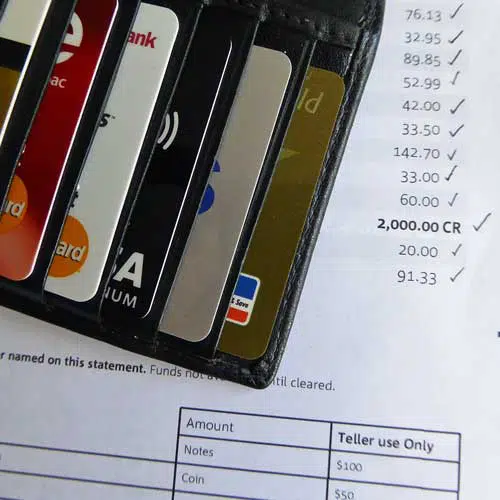As the Federal Reserve prepares to raise interest rates for what would be the fifth time this year, U.S credit card holders are already feeling the squeeze. Some 60% of all cardholders are not only in debt to the issuer, they have been in debt for a year or more, a number that’s up fully 10 percentage points in only a year, according to research results released Monday by Bankrate.com.
Indeed, more U.S. consumers in general appear to be carrying a balance. “It’s not exclusively a low-income issue,” says Bankrate’s report. The breakdown by time in debt indicates 48% are now carrying a balance month to month, while 40% have carried the debt for at least two years, an increase from 32% last year. Some 28%, meanwhile, have been in credit card debt for three years, and 19% for at least five years. Eight percent indicate they don’t know how long they’ve carried their balance.
Bankrate’s CreditCards.com asked YouGov Plc to run the online poll last month. The sample was 2,419 adults, of whom 1,834 had a credit card. Some 879 carry a balance month to month, Bankrate says.

The poll results arrive as banks, acquirers, and the major credit card networks are contending with a raft of other pressing issues, including an effort led by two U.S. Senators, Illinois’s Richard Durbin and Kansas’s Roger Marshall, to lower acceptance costs for merchants by requiring at least two competing networks for credit card transaction routing. On Monday, an identical bill was introduced in the U.S. House of Representatives by Peter Welch, D-Vt., and Lance Gooden, R-Texas.
While interest-rate increases are driving up consumers’ debt costs, respondents in the survey indicated a deeper concern about inflation. Some 51% of respondents holding a credit card balance said rising costs would have a “major impact.” Forty-one percent of cardholders overall said the same. The corresponding proportions indicating a like concern about more rate increases were 46% and 34%.
The report cites a New York Fed number indicating overall credit card balances for U.S. consumers have dropped 4% since late 2019, but the Bankrate survey results show “further evidence of a K-shaped economy,” says Ted Rossman, senior industry analyst at CreditCards.com, in a statement. “While many people are doing better, sadly, many others are doing worse.”
Rossman says he is advising struggling cardholders to apply for a so-called zero-percent balance transfer card, for which some promotions run for as long as 21 months, he says. He adds he is also advising low-rate personal loans and nonprofit credit counseling.





